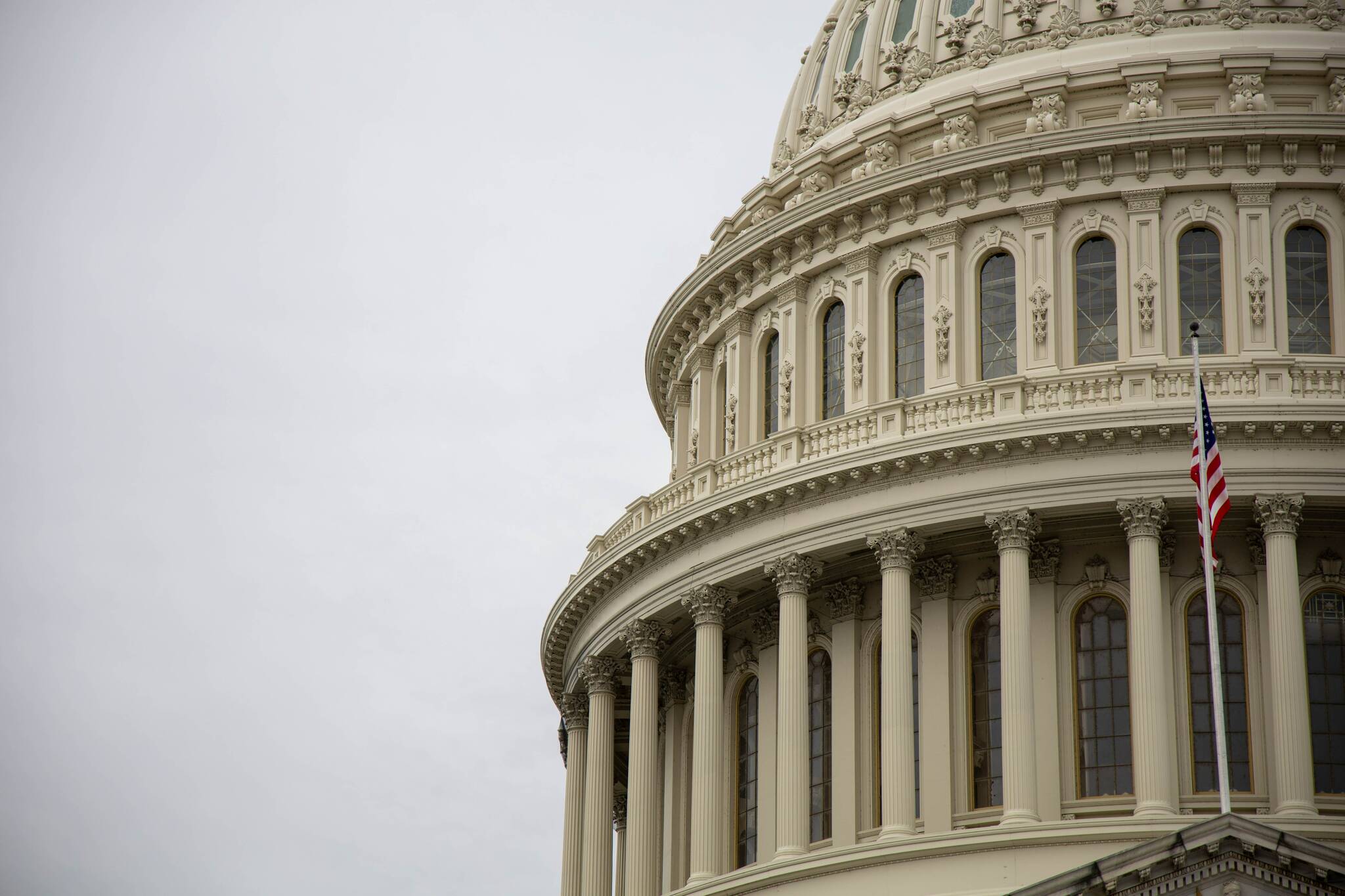Familiar broad political stances on specific Southeast Alaska issues were expressed by the three leading candidates for the U.S. Senate race in November’s general election during an hour-long forum at the Southeast Conference in Ketchikan on Tuesday.
Incumbent U.S. Sen. Lisa Murkowski, a Republican, emphasized accomplishments such as securing billions in federal infrastructure funds large designated for ferries, Republican challenger Kelly Tshibaka attacked President Joe Biden in nearly every answer and called less federal intrusion the path to regional growth, and Democratic challenger Pat Chesbro focused on education and workplace development as keys to boosting the area’s future viability.
The fourth candidate on the ballot, Buzz Kelley, was not invited to the forum and on Monday he suspended his campaign and endorsed Tshibaka.
Questions from some of the estimated 300 attendees at the conference focused on future federal funding for the Alaska Marine Highway System, fisheries, vocational education, affordable power for small communities, housing and land access, tribal relations and mariculture. The single minute candidates were allocated for answers didn’t allow for nuanced details, but all three managed to convey distinct areas of emphasis even when they agreed on general goals.
Their preferred areas of focus were illustrated when asked about their approach to boosting the region’s mariculture.
Murkowski said the industry “is a happening place to be and it’s something I have long put muscle behind” with efforts including advocating for federal grant funds.
Tshibaka criticized Biden for environmental actions such as seeking to reimpose the Roadless Rule in the Tongass National Forest and said she wants to “address strangulation by regulation.”
Chesbro, noting the local oysters and shrimp served at one of the conference’s events, said she wants to focus on “renewable things that will help with food security that is also an issue. We have so much potential and also potential for our universities to do the research.”
Ferry and regional transporation issues were among the most contentious of the forum, due largely to Tshibaka accusing Murkowski multiple time of working to advance Biden’s interests rather than Alaska’s – and Murkowski near the end of the forum finally responding directly by stating her challenger’s comments were neither factually nor politically true.
Murkowski took credit for “single handedly” securing $1 billion for “essential ferry service” in rural areas as part of the bipartisan federal infrastructure bill (although Alaska’s two other congressional members also claimed credit for the bill’s passage, which Murkowski helped shape with nine other senators working with the White House). She said the infrastructure bill also includes significant amounts for other state transportation projects including roads and bridges in Southeast Alaska.
“I think that pretty much helped Southeast and all of Alaska” rather than the Biden administration, she said, responding to Tshibaka’s persistant attack on the subject.
Tshibaka said “the Biden administration has decided we will get no new roads from the infrastructure bill” (which Murkowski called “absolutely not true”) and accused the incumbent of voting to confirm administration officials who presided over actions such as “keeping millions of acres of land locked up.”
“We don’t need a senator who helps Biden by confirming his radical nominees,” Tshibaka said, adding she favors federal lands being transferred to the state and boosting infrastructure by scaling back building regulations.
Chesbro, thanking Murkowski for her efforts to secure federal ferry funds, said a thriving marine highway system needs a successful partnership with the state (without specifically referring to large cuts imposed during Republican Gov. Mike Dunleavy’s first term.) The Democrat also returned to her consistent theme of education, noting growth in transporation and and related industries is dependent on a skilled local workforce.
“We need to develop renewables by the site, what’s available there,” she said, referring specifically to power generation in regional communities. “We also need engineers and others to help develop that.”
Chesbro’s advocacy for boosting vocational training was shared by Tshibaka, with some differences in approach. The Republican challenger said she favors federal assistance for technical colleges and block grants for education “where the dollar follows the child rather than the system,” so a student could get credit for fishing or a mining internship.
“Then we would be able to keep Alaska students in Alaska rather than watching them go to colleges out of state and grow up on social media,” she said.
All three candidates tried in their closing remarks to claim personal ties to conference attendees. Murkowski noted she was born in Ketchikan, grew up in Wrangell and Juneau, and “I’m not going to insult you folks by relying on partisan talking points…(with) no basis in reality.”
Tshibaka said the region “can inspire with our tourism,” but “we have to have leadership that won’t be bullied or controlled by D.C. insiders.” Chesbro, acknowledging she’s an outsider from Fairbanks, offered thanks to participants in helping her become more familiar with the complex range of Southeast Alaska issues during the conference that too often get overlooked by state officials living outside the region.
“I appreciate that you’ve challenged my brain today to learn a lot more,” she said.
• Contact reporter Mark Sabbatini at mark.sabbatini@juneauempire.com

